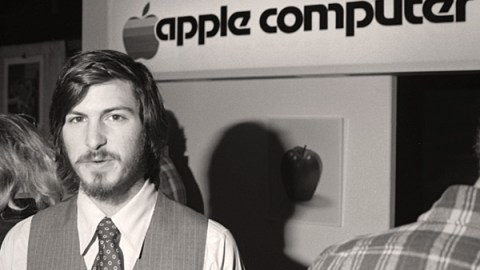You Want to be 21 at the Beginning of a Revolution

Remember the famous statement by William Goldman about Hollywood, “Nobody knows anything.”? He was talking about how nobody can predict what the public really wants and he was sort of acknowledging the tremendous role that serendipity plays and simple luck plays in who wins and who doesn’t.
I sort of touched on this a little bit in Outliers when I talk about how many of the most powerful people in Silicon Valley were all born in 1955 or thereabouts. And that is simple luck. That means they were 21 in 1976, which is the birth of the personal computer era and you want to be 21 at the beginning of a revolution. If you’re 18 you’re too young and if you’re 25 you’re too old and so that is a kind of delicious serendipity that if you happened to be into computers and you happened to be born in 1955 you got lucky.
You got a chance to make a billion dollars and if you were born three years later you probably didn’t. I don’t know why we run from explanations of success that include a healthy dose of serendipity. Why do we want to claim that every great success is a result of some kind of genius that saw it all, or had some extraordinary foresight? No it isn’t. You happened to do something that struck a chord and then after that all kinds of avenues opened up. That is to me a far more plausible explanation.
When I think about my own career that is how I interpret it. I happened to be doing things that I wanted to do and they happened to strike a chord at a certain point. I have no illusion that if I had come along two years later I would be as successful as I am now. I don’t think I would be. I think I just was in the right place at the right time and people have come back for more. But am I in control of this process? Not in the slightest.
In Their Own Words is recorded in Big Think’s studio.
Image courtesy of Shutterstock




